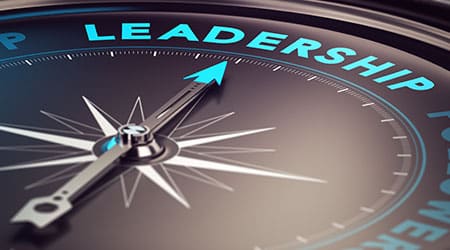Leadership is a vital skill in any organization, whether it is a small business or a large corporation. Effective leadership is the ability to motivate and inspire others, build relationships, make decisions and take risks with confidence. So, in this article, we will discuss every detail that comes with effective leadership.
Why Is Effective Leadership in Business Important?
Ineffective leadership can cost businesses more than just employee morale. According to Gallup research, 24 percent of employees are actively disengaged as a result of poor management, resulting in less productive, less profitable, and more likely to cause turnover teams. And turnover adds up quickly, amounting to nearly twice the annual salary of each employee who leaves.
That is why effective leadership abilities are essential. You need people who can effectively communicate the company’s vision, guide teams, and influence change in order to retain employees, satisfy customers, and improve company productivity.
What are the five requirements for effective leadership?
The five primary requirements for effective leadership are:
- Vision: Effective leaders have a clear vision of where they want to go and what they want to achieve. They have a plan of action and are able to communicate their vision to their team.
- Communication: Effective leaders are excellent communicators. They understand how to listen, how to ask questions, and how to provide feedback. They are able to clearly articulate their vision and objectives.
- Trust: Effective leaders are able to build trust with their team. They understand the importance of building relationships and are willing to take the time to get to know their team members.
- Decision Making: Effective leaders understand how to make decisions quickly and effectively. They are able to evaluate options and make decisions based on the best interests of the organization.
- Integrity: Effective leaders possess integrity and are honest and transparent in their dealings. They adhere to their own principles and standards and are reliable and consistent.
Effective Leadership Examples
There are many examples of effective leadership in the world today. For example, Warren Buffett, the legendary investor, and CEO of Berkshire Hathaway is an effective leader who has built a successful company by taking calculated risks, making sound decisions, and investing in people.
Another example is Jeff Bezos, the founder, and CEO of Amazon. He is an effective leader who has been able to scale his company from a small online bookseller to a giant of the internet. He is able to make quick decisions and motivate his team to achieve their goals.
Finally, there is Oprah Winfrey, the media mogul, and philanthropist. She is an effective leader who has been able to use her influence to create positive change in the world. She is passionate about her work and has a clear vision of how she wants to make the world a better place.
Qualities of Effective Leadership
There are many qualities that make up an effective leader. An effective leader must be able to inspire, motivate, and empower their team. They must also be able to build relationships and trust.
An effective leader must possess strong communication skills. They must be able to listen to others, ask questions, and provide feedback. They must also be able to clearly articulate their vision and objectives.
An effective leader must also possess strong decision-making skills. They must be able to evaluate options, make decisions quickly and effectively, and take risks when necessary.
Finally, effective leaders must possess integrity and be honest and transparent in their dealings. They must adhere to their own principles and standards, and be reliable and consistent.
Skills of Effective Leadership
Skills of effective leadership are the qualities that enable an individual to lead effectively. An effective leader must be able to inspire and motivate their team. They must be able to build relationships and trust. They must possess strong communication skills and be able to articulate their vision and objectives. They must also have strong decision-making skills and be able to take risks when necessary. Finally, they must possess integrity and be honest and transparent in their dealings.
An effective leader must also possess strong problem-solving skills. They must be able to identify problems and develop solutions quickly and effectively. They must also be able to delegate tasks effectively and empower their team to achieve their goals.
What is the importance of effective leadership?
Effective leadership is essential for any organization, regardless of its size. An effective leader is able to motivate and inspire their team, build relationships and trust, and make decisions quickly and effectively. An effective leader is also able to identify problems and develop solutions quickly and effectively. They are also able to delegate tasks effectively and empower their team to achieve their goals.
Effective leadership is also important because it helps create a positive work environment. It helps to foster collaboration and creativity and encourages employees to work together to achieve common goals. It also helps to reduce conflict and build morale.
Companies might lose more than just morale due to ineffective leadership. Poor management results in 24 percent of employees being actively disengaged, according to Gallup data, which makes for teams that are less efficient, less successful, and more likely to see turnover. And that turnover quickly piles up, equaling about twice the annual compensation of each departing employee.
Effective leadership abilities are crucial because of this. You need people who can clearly express the company’s vision, lead teams, and affect change in order to keep employees, please customers, and increase corporate productivity.
What is the most effective leadership style?
The most effective leadership style is one that is based on trust and collaboration. An effective leader must be able to build relationships and trust with their team. They must also be able to motivate and empower their team to achieve their goals. An effective leader must also be able to delegate tasks effectively and foster collaboration and creativity.
The most effective leaders also possess strong communication skills. They must be able to listen, ask questions, and provide feedback. They must also be able to clearly articulate their vision and objectives.
What are the 7 elements of leadership?
The seven elements of leadership are:
#1. Transparency
Transparent leaders face fewer challenges from the people they manage. Transparency, which may be achieved by a combination of communication, educated debate, shared decision-making, establishing a consensus, and utilizing social media, is used by good leaders to assist others around them in embracing change. Individuals should understand the factors that went into a leader’s decision-making process as well as how they will influence them. Transparent leaders don’t micromanage; they accept responsibility for failures and give credit to others when things go well.
#2. Learn from Failure
Failure has the ability to change a leader. It is an effective educational tool that imparts lessons about creativity, rejuvenation, and survival. Accepting failure empowers us to transform and motivate others. To achieve tremendous rewards, leaders must be willing to take big chances and fail. Leaders develop fantastic insights into people and learn who they can trust as a result of the process.
#3. Trust
Trust is one of the fundamental tenets of leadership. In the past, leadership was a rare and distinctive quality, the domain of the wealthy. That vertical leadership model is less effective in the present day. In order to succeed today, one must be able to work together with people over whom a leader has no control in order to achieve shared objectives. To put it another way, a good leader no longer believes in the power of force but instead in the strength of trust. A leader must also be trustworthy and willing to accept the risk of putting their followers’ faith in order to be effective because they are a trustee in every relationship.
#4. Confidence
A strong leader exudes assurance. No one will follow a leader who lacks confidence, and people are able to see through a false sense of assurance. An effective leader is one who can clearly communicate their objectives and stand by their choices, as opposed to someone who tries to disguise their anxieties with an air of arrogance. A smart leader can trust their instincts and make any decision, even after failing. In general, confident leaders are happier, build stronger connections, stay risk-takers, accept criticism, think independently, appreciate success, and are more motivated.
#5. Being Decisive
Wise leader thoroughly considers their options, but once they make a choice, they are not readily swayed. This demonstrates dedication, which fosters consistency, both of which are qualities that benefit leadership. After learning how to officiate basketball games, Scott Hoffman, the owner of Folio Literary Management, remarked to a mentor, “Make the call fast, make the call loud, and don’t look back,” that instruction still rings in his ears today. He continued by saying that sometimes making quick, rash decisions on little issues leads to greater long-term outcomes and a strong team mindset than making deliberate, accurate decisions that are ultimately wrong.
#6. Modesty
To stay grounded and connected to those around them, leaders must possess this quality. Gaining the respect of your staff by being trustworthy, moral, and receptive will benefit you when it’s time to make decisions. The finest leaders are flexible and open-minded, and they can change their ways of thinking or approach as necessary. Some leaders take criticism in stride and see it more as a chance for personal development than as a personal attack. Although everyone appreciates confidence, humility fosters a likable personality that helps others feel more at ease in their position.
#7. Creativity
Many of the decisions a leader must make will be specific to the company and demand more consideration than applying a prepackaged solution. Teams frequently turn to a leader for creative thinking, therefore any leader will benefit from being able to draw from past experiences and a wealth of fresh concepts.
These seven qualities can give an organization the skills it needs to guide itself toward success, even though leadership styles may need to be modified to fit particular situations and organizations. Although some people may be born leaders, anyone may exhibit these qualities with the correct amount of motivation.
What are the 7 techniques for good leadership?
The seven techniques for good leadership are:
- Empowerment: An effective leader must be able to motivate and empower their team to achieve their goals.
- Coaching: An effective leader must be able to provide guidance and support to their team and help them to develop their skills.
- Collaboration: An effective leader must be able to foster collaboration and creativity.
- Delegation: An effective leader must be able to delegate tasks effectively and empower their team to achieve their goals.
- Communication: An effective leader must possess strong communication skills. They must be able to listen, ask questions, and provide feedback.
- Decision Making: An effective leader must be able to make decisions quickly and effectively.
- Accountability: An effective leader must be able to hold their team accountable and ensure that they are meeting their goals.
- LEADERSHIP ATTRIBUTES: The Top Key Strong Attributes that Make a Good Leader
- HOW TO MOTIVATE EMPLOYEES: 6 Simple Ideas.
- QUALITIES OF A LEADER: What are the Best 15 Qualities & the Essentials (Detailed)
- HOW TO BE A LEADER: Becoming the Leader of Your Dreams






